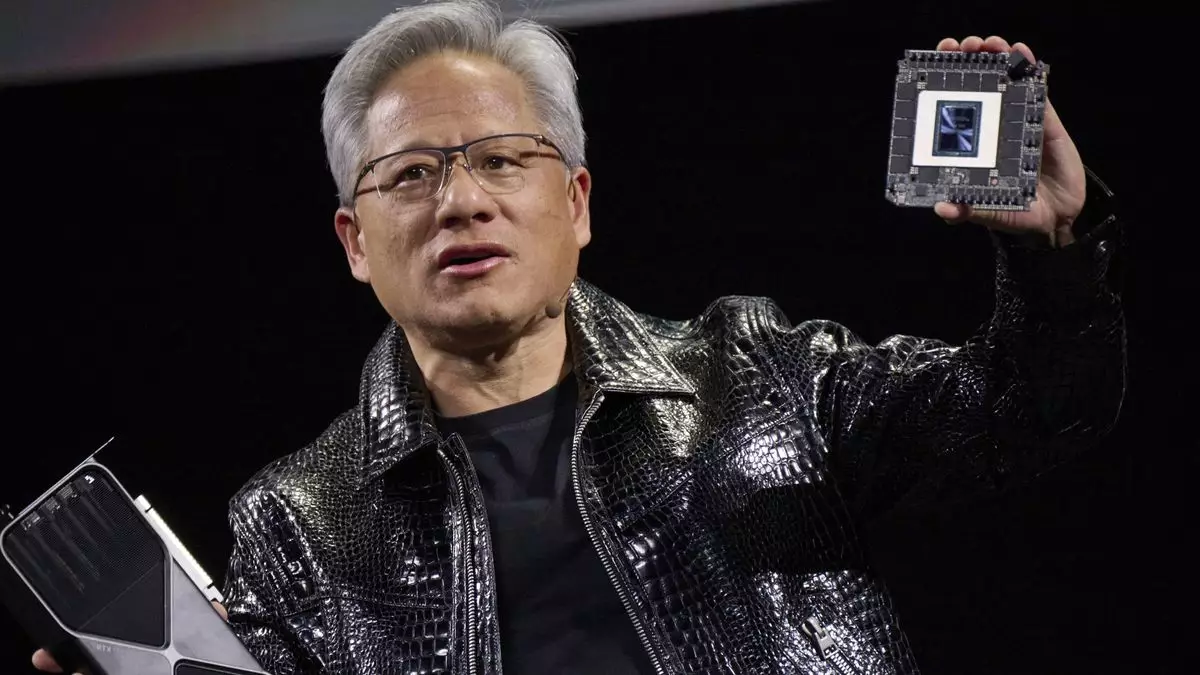As technology advances, the demand for powerful graphics processing units (GPUs) has surged, particularly in artificial intelligence (AI) and gaming. Nvidia, a leader in this industry, is at the center of recent discussions surrounding its Blackwell GPU series. Despite facing significant challenges with overheating issues and design flaws in its AI-focused chips, there are reasons to remain optimistic about the upcoming RTX 50 family of gaming GPUs, which, though based on the same architecture, appear to diverge in their functionality and performance profiles.
Reports have emerged suggesting that Nvidia’s top clients—tech giants such as Microsoft, Amazon, Google, and Meta—are scaling back their orders for the Blackwell GPU series. The primary issue appears to be related to overheating problems that have impeded the chips’ performance, leading to customer dissatisfaction. This has forced these companies to consider reverting to Nvidia’s older Hopper series, which has been perceived as more reliable. Concerns about GPU temperature management are not new; rumors surrounding Blackwell’s overheating began circulating as far back as November. These reports suggested an ongoing redesign of liquid-cooled racks, designed to house multiple Blackwell GPUs, indicating a troubling pattern.
Nvidia CEO Jensen Huang publicly acknowledged the design flaws inherent in the Blackwell series, attributing them to low production yields. While Huang’s statements did not explicitly mention overheating, the implications of design issues likely contribute to the thermal problems experienced by the Blackwell GPUs. This multifaceted dilemma highlights the challenges Nvidia faces across its product lines, placing its design and manufacturing processes under intense scrutiny.
It is important to note that despite being built upon the same Blackwell architecture and using TSMC’s N4 process technology, the RTX 50 gaming GPUs are fundamentally different from the AI-targeted Blackwell series. One significant distinction lies in their respective layouts and configurations, especially concerning the number and arrangement of functional units. Gaming workloads operate under different conditions and require optimizations that are not necessarily comparable to those needed for AI tasks. Therefore, while the design flaws of Blackwell may have implications for AI performance, the impact on gaming GPUs appears limited.
Analysts and enthusiasts should maintain an open mind regarding the distinct operational environments of AI and gaming applications. The nuances of how a gaming GPU process graphics differ significantly from AI operations, which involve the heavy lifting of data and complex calculations. Such differences diminish the likelihood that any design flaws affecting Blackwell would have a similar effect on the forthcoming RTX 50 series.
Seeking Wider Validation: The Path Forward for Nvidia
A crucial element missing from the narrative surrounding Nvidia’s struggles is corroboration from multiple sources. The Information has primarily fueled concerns about Blackwell, yet broader validation from additional industry insiders or tech analysts could provide a more comprehensive view of the situation. Until then, Nvidia’s assurances regarding its gaming GPUs remain pivotal. The company has a solid track record, and many enthusiasts are eagerly waiting to see if Nvidia can deliver a robust product that meets or exceeds expectations.
While Nvidia grapples with overheating challenges and design flaws in its Blackwell AI series, there is little reason to panic regarding the performance of its upcoming RTX 50 gaming GPUs. The distinct nature of gaming architecture and workloads, combined with the necessary optimizations, sets a precedent for optimism. As the launch date approaches, it is paramount to keep an eye on Nvidia’s handling of these issues and to anticipate developments in thermal management technologies that could mitigate such risks in future iterations. The landscape of GPUs is ever-changing, and Nvidia’s ability to innovate and respond to these challenges will determine the viability of its upcoming gaming chips.


Leave a Reply